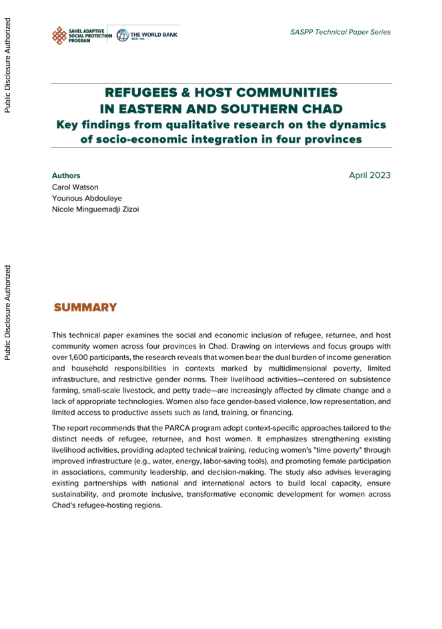
Refugee and Host Communities in Eastern and Southern Chad: Key Findings from Qualitative Research on the Dynamics of Socio-Economic Integration in Four Provinces
Author(s)
World Bank
Report
Abstract
This technical paper examines the social and economic inclusion of refugee, returnee, and host community women across four provinces in Chad. Drawing on interviews and focus groups with over 1,600 participants, the research reveals that women bear the dual burden of income generation and household responsibilities in contexts marked by multidimensional poverty, limited infrastructure, and restrictive gender norms. Their livelihood activities—centered on subsistence farming, small-scale livestock, and petty trade—are increasingly affected by climate change and a lack of appropriate technologies. Women also face gender-based violence, low representation, and limited access to productive assets such as land, training, or financing. The report recommends that the PARCA program adopt context-specific approaches tailored to the distinct needs of refugee, returnee, and host women. It emphasizes strengthening existing livelihood activities, providing adapted technical training, reducing women's "time poverty" through improved infrastructure (e.g., water, energy, labor-saving tools), and promoting female participation in associations, community leadership, and decision-making. The study also advises leveraging existing partnerships with national and international actors to build local capacity, ensure sustainability, and promote inclusive, transformative economic development for women across Chad's refugee-hosting regions.
